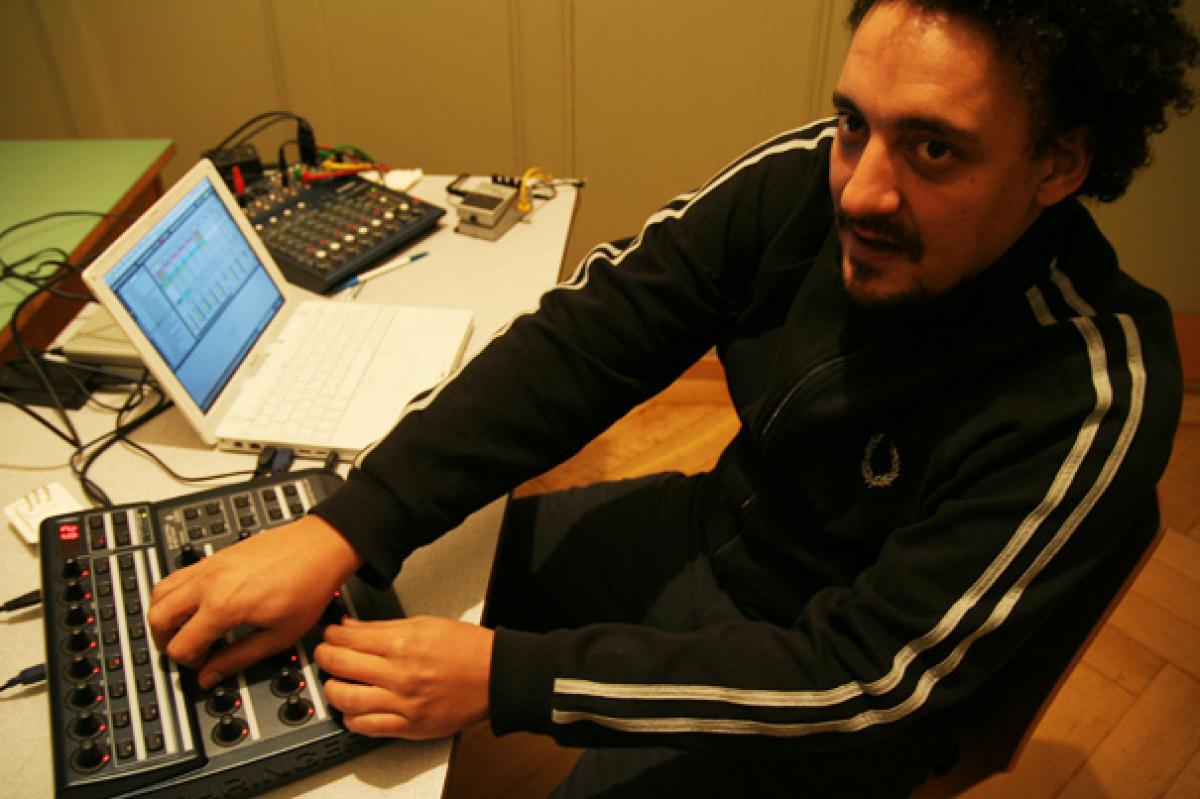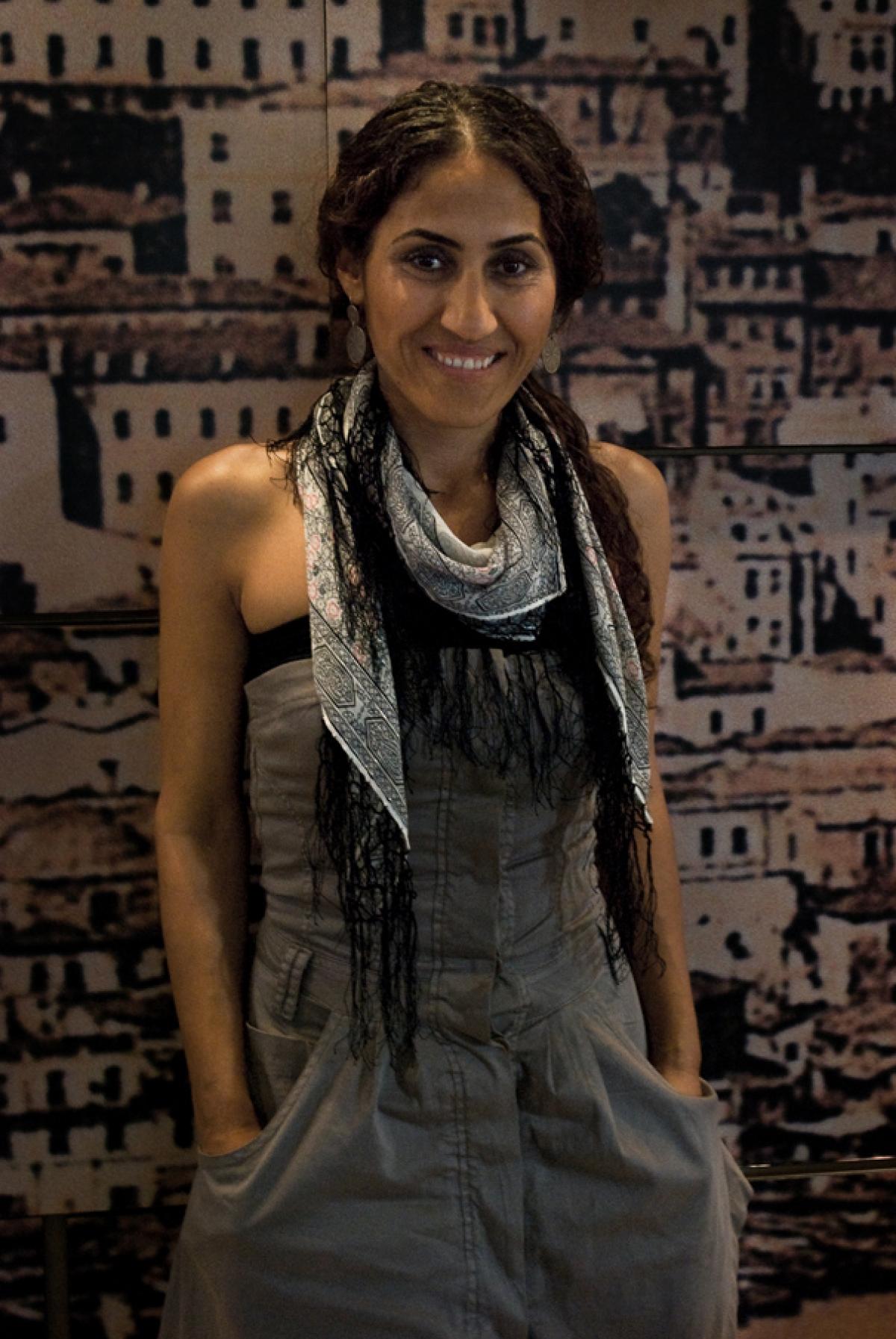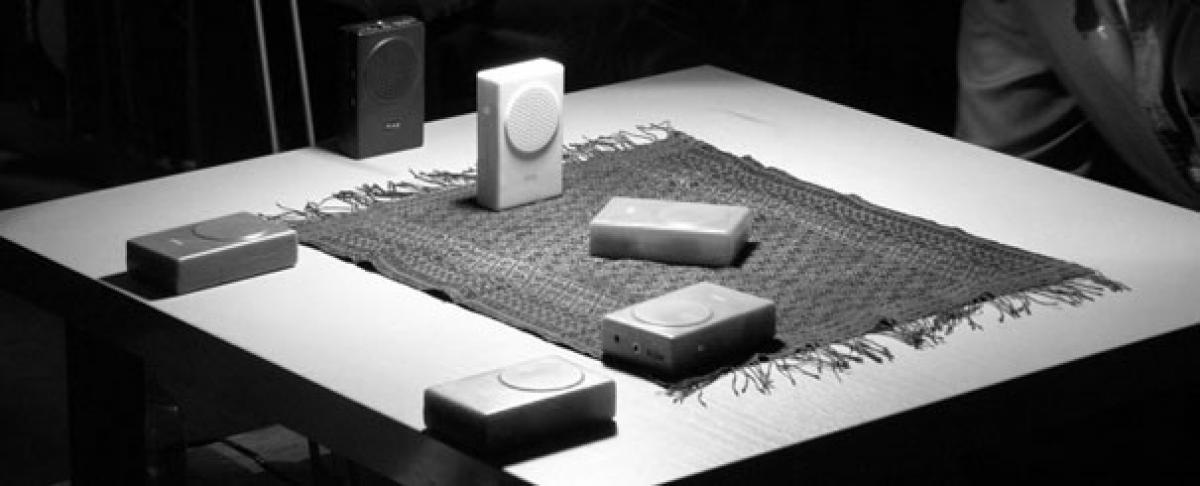
100 Copies from Cairo
«I think an idea like this has to be handled alone», says sound artist and musician Mahmoud Refat. «Otherwise it will look like a kind of cultural activity [that has become] a fashion in the past few years, these kinds of collective group things. I'm not against this, but I didn't want 100Copies to look like that.»
100Copies is an independent record label that started out in Cairo almost exactly a year ago. Refat, who runs the label alone but in constant consultation with friends and fellow musicians, pegs April 28, 2006, as day one. With six releases now racked up in the 100Copies archive, he celebrated a year in existence by hosting an electronic music festival – 100Live – at an open-air Cairene garden late last month. Five artists, including Sherif El-Azma and Nermine El-Ansari, provided live visuals to accompany performances by Hassan Khan, Adham Hafez, Omar Kamel, the group Bikya and others.
«It is important that people should see this live», says Refat, who was born in Cairo in 1974 and began his musical career by playing in local funk, acid jazz and experimental rock bands in the 1990s, before gravitating toward more complex compositions, film and performance soundtracks and a sound characterized by nimble, ambient electronics and moody, mysterious progressions. «The musicians of 100Copies use a lot of acoustic instruments, not only computers and samplers. I know it is important for people to see the musicians producing this kind of music live.»
From the beginning, the idea behind 100Copies has been to create a platform and a network for experimental musicians – primarily those living and working in Cairo but also their counterparts in other regional and international cities. (Though his loyalty to musicians and label mates like Khan, Hafez, Bikya, Zimoun and Ramsi Lehner is clear, Refat is also fostering a relationship with a new group from Tunis, and plans to bolster his efforts elsewhere in the coming years.
«It seemed like a simple idea and I was surprised nobody had done it before», he says in an interview conducted via email between Beirut and Cairo.
The label’s first release was his own CD, Miramar, named for the street where his grandmother lived and where he grew up. With a mesh of jazzy inflections colored by spare beats and electronic washes, Mirimar, and specifically the lusciously enigmatic 10-minute title track, set the tone for what 100Copies would become.
Each CD on the label is released in a limited edition – thus the name – with additional copies produced for distribution outside of Egypt. This is one of several instances in which Refat has borrowed strategies more attuned to the contemporary art world than the music business. The art space, after all, is nothing if not open to innovation and collaboration across different disciplines and media. This is as true of the independent art scene in Cairo as it is of its notably smaller sibling in Beirut.
The art crowd in Beirut may remember Refat from his eloquent performance of Berlin: The Symphony of a Big City at the third edition of Ashkal Alwan’s Home Works Forum in 2005. In the style of Detroit DJ Jeff Mills crafting a soundtrack to Fritz Lang’s Metropolis, Refat created a live electronic score for Walter Ruttman’s 1927 film, part of Refat’s ongoing research on urban documentaries from the 1920s through the 1940s.
Three years earlier, Hassan Khan performed his masterful «Tabla Dubb» for the first time at the inaugural edition of Home Works. With shades of similarity to the music of Muslimgauze (aka the late musician Bryn Jones), «Tabla Dubb» incorporates a wealth of sound sources into the basic patterns of popular Egyptian music. Khan establishes rhythm, structure and repetition only to break them open, tear them down and rebuild them anew. The result is no mere background lounge listening but rather a visceral sonic experience in making a radical thought process manifest and material. As a performance, the piece is paired with images projected on a screen. As a series of 14 tracks, «Tabla Dubb» is the fourth release in 100Copies’ back catalogue, put out in March with the promise of making Khan’s work more available to those who may have missed his performances.
Refat and Khan have been collaborating for years, and without ego Refat notes that until recently all anyone knew of Cairo’s experimental music scene was their work. It was a niche. The label is a concerted effort to expand and diversify it by recruiting new talent.
«There was a scene with an audience and musicians», says Refat. «The musicians were pushing to play more and find more venues. Galleries were the easiest choice but we did not stop there. We tried to involve other venues like the Cinema Palace or the American University [in Cairo] or the Sawy Center.»
«I am looking for an alternative way of making music», he explains. «There has to be a step taken in the music that I am looking for in terms of ideas and approaches – even if it is classical or traditional music done with traditional instruments.»
«The music on the label, then, may grow and change. But the logic of working alone is likely to remain the same», says Refat: «I can direct things the way I want without compromising anything.»
Biography
Published on November 10, 2008
Last updated on April 29, 2024
Topics
Music and art that dealing with the unfinished and undefined.
Why does a Kenyan producer of the instrumental style EDM add vocals to his tracks? This topic is about HOW things are done, not WHAT.

